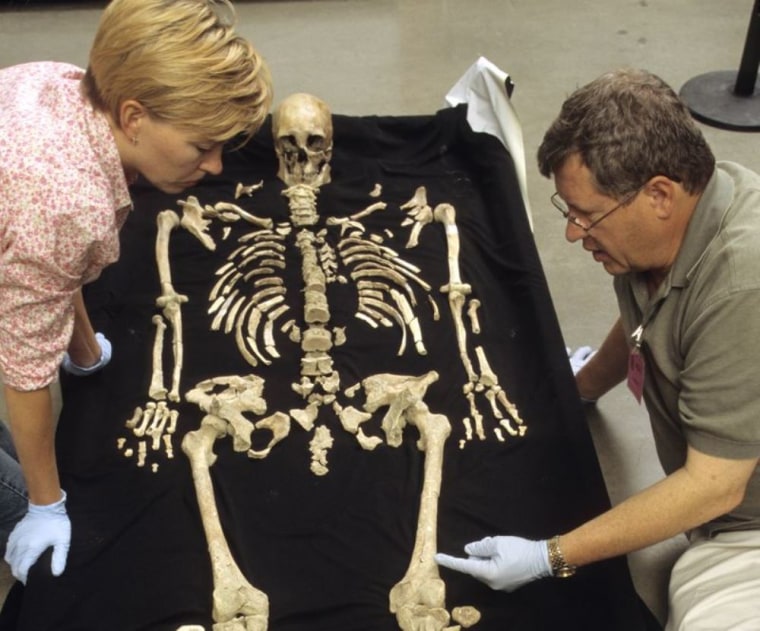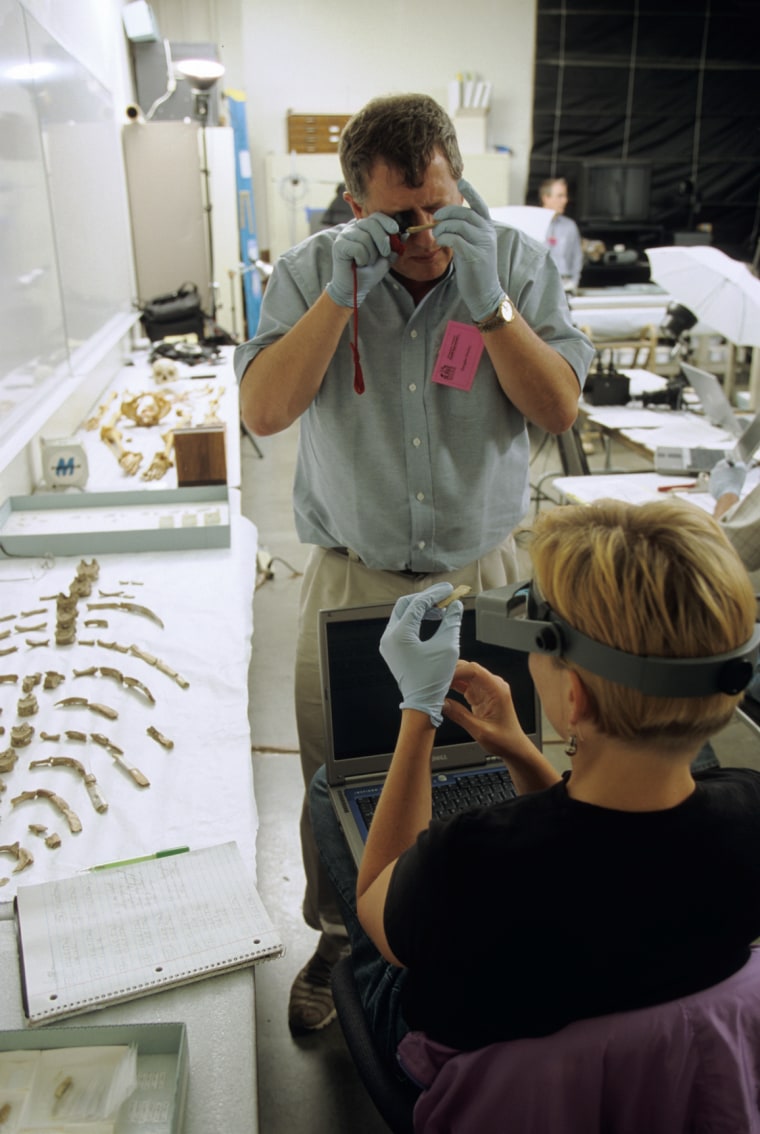Some of the scientists who have studied the 8,500-year-old skeleton known as Kennewick Man, also known as the Ancient One, say they could learn more from further studies — and they'd be reluctant to see the remains handed over to the Native American tribes that claim him.
But they aren't prepared to say whether they'd go back to court to stop a handover.
"Boy, I'd have to think about that," said Douglas Owsley, a forensic anthropologist from the Smithsonian Institution's National Museum of Natural History.
Owsley was part of a group of scientists who sued the federal government in 1996 to get access to the bones. As a result of that drawn-out lawsuit, Owsley and others were able to spend 16 days studying Kennewick Man in 2005 and 2006. The result was a 680-page book about the skeleton and what it said about the man's life and death.
The book concluded that Kennewick Man was a visitor to the Columbia Basin region, perhaps from a locale farther north and nearer to the coast. That meshed with the scientists' argument that he could not be affiliated with any of the present-day Native American tribes who wanted him turned over for reburial — an argument that was accepted by the federal judges.
For much of the past 19 years, the hundreds of bones and bone fragments that make up the remains of Kennewick Man have been locked away in the Burke Museum of Natural History and Culture, at the University of Washington in Seattle. But now there could be a change, due to a newly published analysis that says DNA samples from Native Americans provide the closest genetic match for the remains.
The U.S. Army Corps of Engineers, which has custody of the remains, says it is drawing up a process for considering the new DNA evidence, and reconsidering Kennewick Man's status. Brig. Gen. John Kem, commander of the corps' Northwestern Division, said the process could play out next year — and it could result in handing over the remains to the tribes.

Owsley says that would be a shame. He'd like to conduct further isotopic tests on the bones, to try to trace Kennewick Man's travels in more detail. He's also anxious to analyze the stone spearhead that's still stuck in the man's pelvic bone. Other scientists might have questions they'd want to address, he said.
"There's a lot of things I'd like to know," Owsley said. "There's so much to be learned about the history of the Americas that I would hate to see the loss of that information."
In his view, the DNA analysis is still too ambiguous to justify a handover under the terms of the Native American Graves Protection and Repatriation Act. "There's no way yet known that you can connect an ancient individual with a modern tribe," he said.
Related: See the Surprising Face of a First American
James Chatters, a Seattle-based anthropologist who was in on the study of the bones but did not get involved in the legal case, said he'd like to see a different group of scientists run their own analysis of Kennewick Man's DNA — to confirm the results reported this week, or perhaps call them into question. But he also said he's resigned to the idea that the remains may soon have to be turned over for reburial.
"From a humanitarian standpoint, I don't have a problem with that," he told NBC News. "But from a scientific standpoint, I have to wear a different hat. ... In effect, these remains are global humanity's heritage."
Would it be worth going back to court to guarantee continued scientific access to that heritage? "I just don't know," Chatters said.
If the Ancient One is handed over, the tribes say that his burial place will be kept secret to head off the possibility of future desecration. And if that's how things turn out, Chatters hopes they'll at least let him in on the secret.
"I want to be there," he said. "I want to pay my final respects."
The study of Kennewick Man — and Owsley's role in that study — is one of the subjects covered in the first episode of "First Peoples," a PBS documentary series that premieres on June 24. Check local TV listings.

